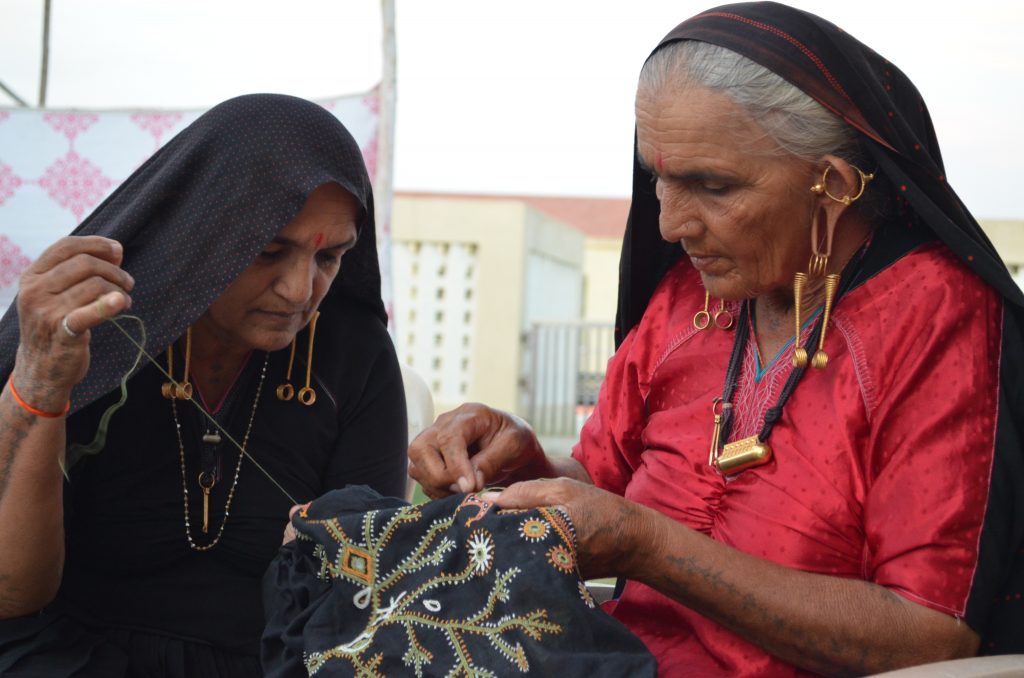

India has a rich demographic dividend of over 49 per cent women and over six million women’s collectives (Self Help Groups) spread across its States. These grassroots institutions have a huge potential and promise to be the harbingers of change for progressive communities and inclusive societies.
We at Tata Power recognise the challenge of the skill gap in grassroots communities. We design our community empowerment efforts to address this challenge by aiding women with potential platforms for maximum exposure. With a focus on holistic growth, our community empowerment initiatives focus on financial independence through training and handholding.
With its core focus on the circular economy, Anokha Dhaaga empowers its women to design unique and upcycled products using eco-friendly raw materials. The initiative focuses on upskilling women members across India through phygital models for design, production support, and market linkages. The objective is inclusive community development through a micro-enterprise collective approach, enabling livelihoods through self-help groups.
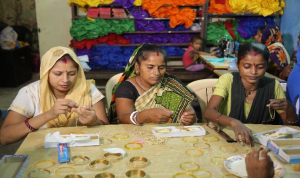 Our flagship programme, Anokha Dhaaga, a women empowerment and livelihood initiative, works towards empowering women’s collectives, increasing their household income while enhancing their leadership skills and promoting handmade crafts. Under this initiative, we provide the women with specialised technical training,
Our flagship programme, Anokha Dhaaga, a women empowerment and livelihood initiative, works towards empowering women’s collectives, increasing their household income while enhancing their leadership skills and promoting handmade crafts. Under this initiative, we provide the women with specialised technical training, 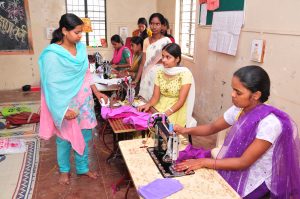 market linkages, and end-to-end support.
market linkages, and end-to-end support.
The intervention started in Maval Tehsil of Pune district in Maharashtra in 2015, where we taught 16 women stitching, tailoring, and other micro-enterprises like making baskets and herbal items. So far, this initiative has benefitted over 1,500 women across eight States – 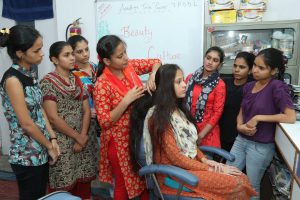 Delhi, Maharashtra, Jharkhand, Madhya Pradesh, Rajasthan, Karnataka, Tamil Nadu, and Gujarat.
Delhi, Maharashtra, Jharkhand, Madhya Pradesh, Rajasthan, Karnataka, Tamil Nadu, and Gujarat.
To widen customer reach across geographies, we launched the in-house eCommerce platform, Saheli World, profiling the makers and their stories where customers get to buy products while contributing to the  larger movement for empowerment.
larger movement for empowerment.
To increase customer base and B2B association, Anokha Dhaaga collaborates with Amazon India under Amazon Saheli, Air Asia, and The Indian Hotels Company, among others. These tie-ups have been helping women entrepreneurs by providing them with a platform to 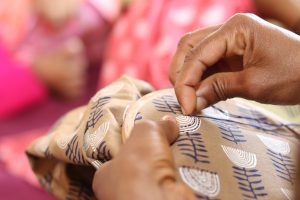 showcase and sell their products.
showcase and sell their products.
With its core focus on the circular economy, Anokha Dhaaga empowers its women to design unique and upcycled products using eco-friendly raw materials. The initiative focuses on upskilling women members across India through phygital models for design, production support, and market linkages. The objective is inclusive community development through a micro-enterprise collective approach, enabling livelihoods through self-help groups.
 With an aspirational vision, the women at Anokha Dhaaga work towards creating a sustainable range of products with a hint of luxury. Anokha Dhaaga’s recent launch, BlessdBox, evolved from a collaboration with celebrity designer, Nida Mahmood, who designed a unique gifting range (curated set with a set of six table mats, serviettes, coasters, and a safety mask stitched in cotton and canvas by Anokha Dhaaga women’s SHGs in Jamshedpur and New Delhi) that emphasises on sustainably-sourced materials. Fifty per cent of the earnings from this project directly go to the makers.
With an aspirational vision, the women at Anokha Dhaaga work towards creating a sustainable range of products with a hint of luxury. Anokha Dhaaga’s recent launch, BlessdBox, evolved from a collaboration with celebrity designer, Nida Mahmood, who designed a unique gifting range (curated set with a set of six table mats, serviettes, coasters, and a safety mask stitched in cotton and canvas by Anokha Dhaaga women’s SHGs in Jamshedpur and New Delhi) that emphasises on sustainably-sourced materials. Fifty per cent of the earnings from this project directly go to the makers.
The women of Anokha Dhaaga believe in working collectively. This power of sisterhood was impactful during the pandemic, providing livelihood to micro-entrepreneurs while contributing significantly towards COVID relief efforts. They made specialised SHG-95 (trademarked) high-protection masks out of pure cotton with filter quality-tested at accredited laboratories. In partnership with #BillionSocialMasks, Anokha Dhaaga distributed more than one lakh masks across communities.
Apart from protective masks, care packages with wellness products like immunity booster tea masala, herbs, and Ashwagandha powder made by our women were distributed across communities, enabling wages and livelihoods for the women during the tough times of the pandemic.
Focus on Employability for Women
Abha/Abha Sakthi/Abha Sakhi (Vocational Skilling for Women)
Roshini – This integrated vocational training centre focuses on inclusive growth as a core focus and implements an evolved unique model furthering women’s livelihoods by combining customer connect and safety and shared value generation by involving and upskilling women’s SHGs.
Under this flagship community empowerment initiative, semi-skilled and unskilled women from the communities are given mentoring and quality training on technical domains such as electricity metering, billing, and collections, along with awareness about energy conservation. Today, these community ambassadors are not only financially empowered but also rally a very critical cause on energy conservation while being community role models embedding progressive social behaviours into their communities.
This shared value programme supports community lives and livelihoods, leverages technology as a tool, and upskills women to serve as community change agents. Over and above technical upskilling and employment opportunities, the programme also emphasises grooming, leadership skills, and creating awareness on efficient energy consumption empowering the Abha women to become Conservation Champions. The trained women also serve as Adhikaarpreneurs to further access the government’s social welfare schemes, financial and digital literacy while embedding progressive social behaviours into their communities.
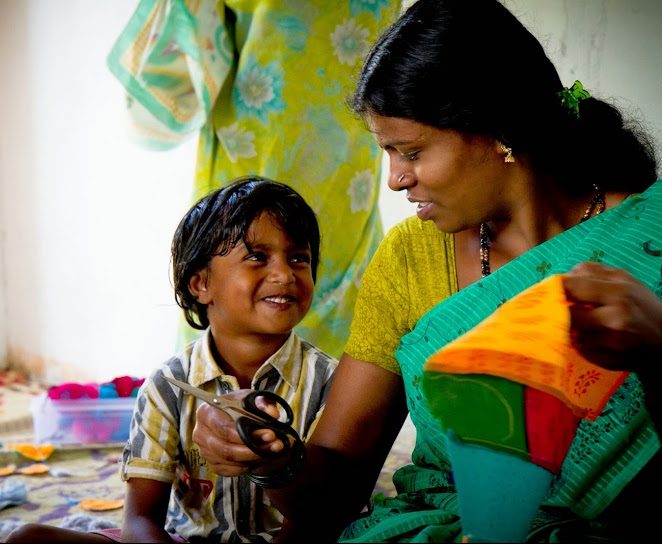
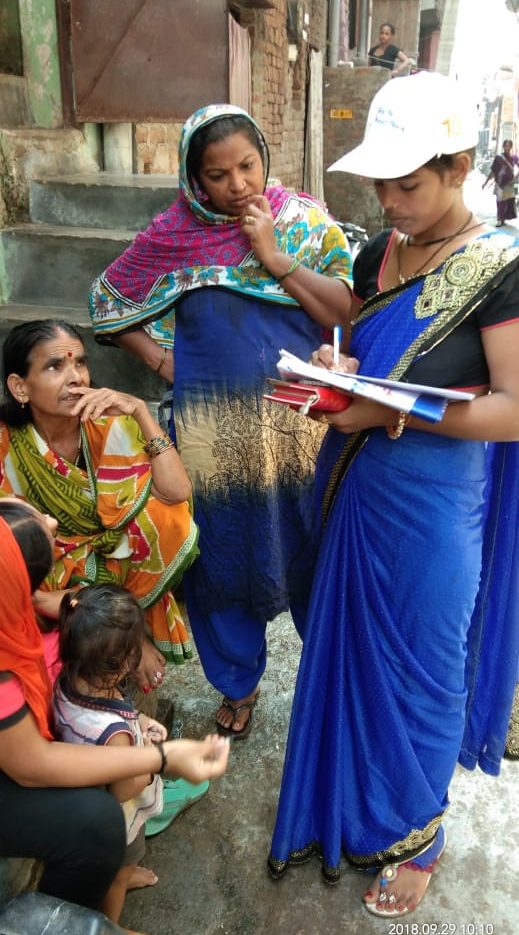
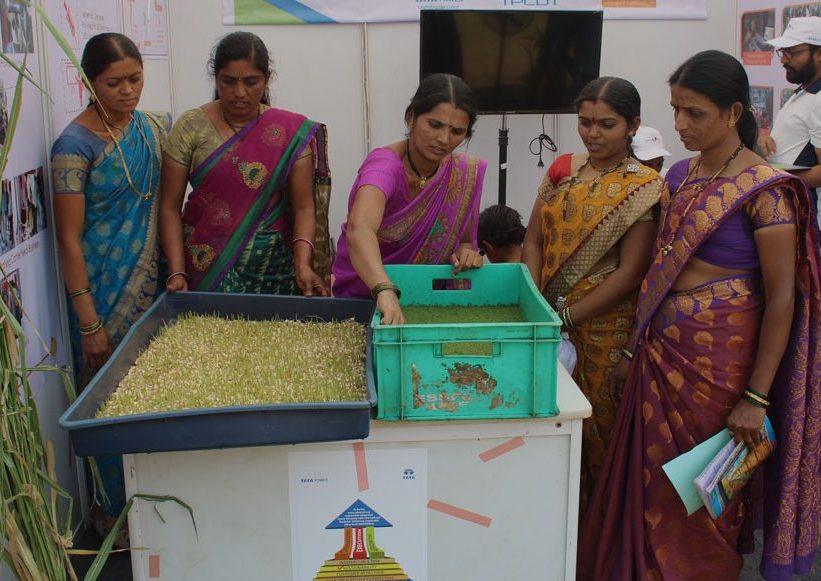
The flagship skilling and employment model is being successfully furthered in Delhi as Abha, Odisha as Abha Sakti, and Mumbai as Abha Sakhi, serving a large customer base in slum and rural areas. The initiative also focuses on vocational skill-building of semi-skilled/unskilled women and girls, focusing on financial literacy, life skills, and leadership training.
This shared value programme supports community lives and livelihoods, leverages technology as a tool, and upskills women to serve as community change agents. Over and above technical upskilling and employment opportunities, the programme also emphasises grooming, leadership skills, and creating awareness on efficient energy consumption empowering the Abha women to become Conservation Champions. The trained women also serve as Adhikaarpreneurs to further access the government’s social welfare schemes, financial and digital literacy while embedding progressive social behaviours into their communities.
We have engaged more than 8000 Abhas across Delhi, Jharkhand, Mumbai, and Odisha under this flagship initiative over the last four years. The Abha partners today earn an average monthly income of nearly Rs 10,000.
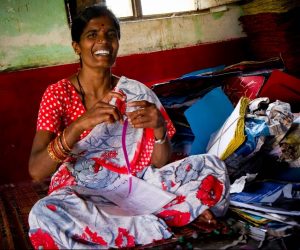
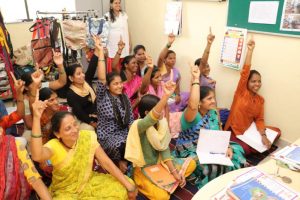
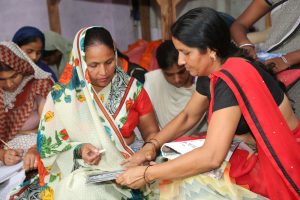
India’s grassroots communities have massive potential and promise. Our CSR and voluntary efforts shall continue to champion and enable these institutions and groups, build their confidence, knowledge and skills to access more and more opportunities for collective growth, access to technology and sustainable livelihoods. With the growing employment demands of the rapidly changing industrial ecosystem, there is a big imperative to interlink skilling and mentoring of underserved communities with inclusivity initiatives as part of large business value chains, and our community empowerment efforts are largely centred around this.

